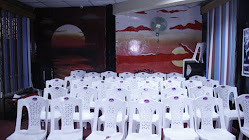World Bank expert advises smallholder farmers to invest more on right farming technologies
THURSDAY
OCTOBER 20 2016

Rice
farmers plant the crop at the Mwea Irrigation Scheme. A World Bank expert has
urged smallholder farmers to invest more in precision agriculture. FILE PHOTO |
NATION MEDIA GROUP
·
Dr Ladisy recommends that the government should empower
smallholder farmers, acquire land and lease out the schemes to the farmers to
manage for maximum returns.
·
The government should also invest in human capital, trained
labour has much higher mobility than untrained ones.
By LEOPOLD OBI
More by this Author
More by this Author
Smallholder
farmers in areas facing land and water constraints have been advised to invest
more on right technologies which allow precision agriculture and guarantee high
returns at the same time.
Precision
agriculture entails approaches such as use of drip irrigation and green-houses
so that to ensure that only crops which need water or fertilisers receive the
inputs.
Dr
Ladisy Chengula, lead agriculture economist at World Bank, says such
interventions protect crops during shocks which has been intensified by climate
change impacts.
In
September this year the National Drought Management Authority (NDMA) issued
drought alerts for 11 counties and an alarm for one. According to the
authority’s early warning bulletins, Narok, Kajiado, Taita-Taveta, Kilifi,
Kwale, Tana River, Kitui, Makueni, Marsabit and Garissa counties are
experiencing a decline in food and livestock production as well as water
supply.
The
food security situation in the counties is expected to get worse in the coming
weeks, the authorities warned.
Food
security situation comes in the wake of increasing investment in agriculture by
the government which the expert World Bank agricultural economist has faulted
as unsustainable and therefore a waste of resources.
Government
run irrigation projects such as the 10,000 acre model farm that forms the first
phase of the Galana-Kulalu one million acre food security project has terribly
failed due to claims of mismanagement and runaway corruption.
EMPOWER SMALLHOLDER FARMERS
Initially
the Sh7 billion irrigation project was meant to address the country’s perennial
maize deficit of 20 million bags of the grains, but in the end, the
project produced only 10 bags rather than the targeted 40 bags of 90kg per acre
on it first harvest.
“Nearly
all the irrigation schemes in the country managed by the government, for
instance Galana-Kulalu irrigation project have failed to give yields as have
been expected,” Dr Ladisy pointed out, during the commemoration of
international day of poverty eradication at the World Bank Group offices in
Upper Hill, Nairobi.
Dr
Ladisy instead recommends that the government should empower smallholder
farmers, acquire land and lease out the schemes to the farmers to manage for
maximum returns.
He says
that unless resilience is built poverty will not end.
“The
government should also invest in human capital, trained labour has much higher
mobility than untrained ones,” said the expert, adding that farmers in the village
should aggregate to overcome challenges of market access and poor prices.
Subscribe to:
Post Comments
(
Atom
)


















No comments :
Post a Comment